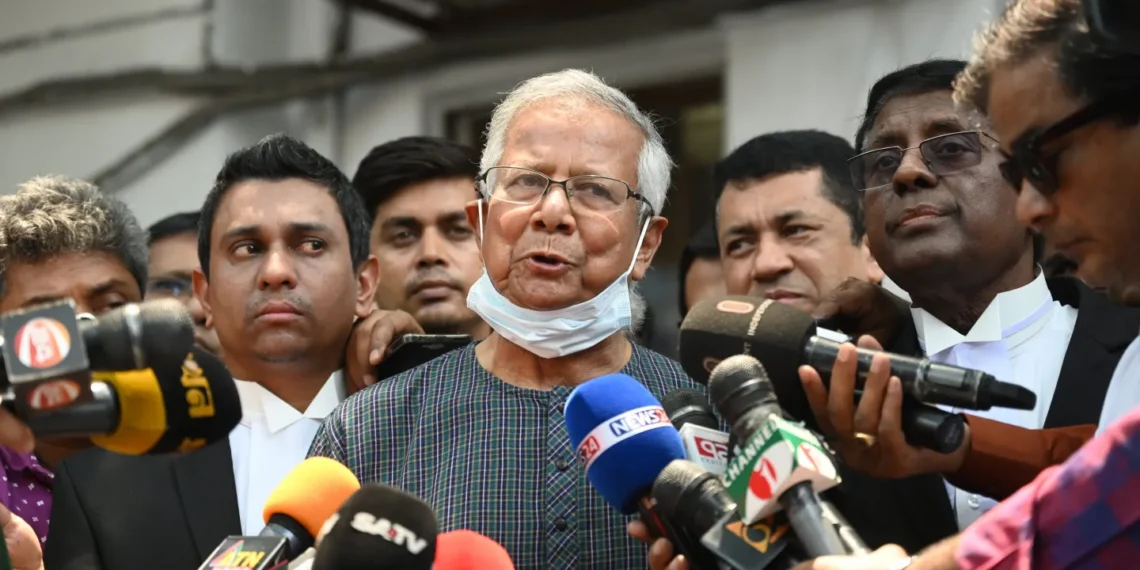The Good
- Respected Leadership: Muhammad Yunus, known globally for his pioneering work in microcredit and social entrepreneurship, has been appointed as the interim leader of Bangladesh. His reputation as the “banker to the poor” and Nobel Peace Prize laureate brings a positive and inspiring image to the leadership role, likely boosting both domestic and international confidence in the interim government.
- Economic Revitalisation: Yunus’s extensive experience with economic development and poverty alleviation provides a strong foundation for addressing Bangladesh’s current economic challenges. His leadership could bring innovative solutions to revive the economy, control inflation, and stabilize the job market, which is essential for the country’s growth and stability.
- International Goodwill: Yunus’s international acclaim and established relationships with global institutions could lead to increased foreign aid and support. His ability to leverage his global profile might help attract international investments and aid to Bangladesh, which could be pivotal in stabilizing the economy and fostering development.
- Potential for Reform: The interim government under Yunus’s leadership might implement reforms to improve governance and reduce corruption. His previous criticism of the previous administration suggests that he may pursue policies to enhance transparency and accountability, which could positively impact political and civil institutions in Bangladesh.
The Bad
- Political Uncertainty: Yunus steps into a highly volatile political environment following violent protests and the flight of the previous prime minister. His leadership faces the challenge of navigating a deeply divided and politically unstable landscape, which could complicate efforts to restore peace and order.
- Economic Hardship: Bangladesh is grappling with severe economic issues, including skyrocketing food prices and a stagnant job sector. Addressing these problems requires immediate and effective action, which might be difficult under the current conditions of instability and limited resources.
- Potential Resistance: Yunus has previously faced significant political opposition, particularly from the outgoing government. There is a risk that entrenched political interests and factions may resist his reforms or undermine his efforts to stabilize the country, potentially leading to further conflict and instability.
- Diplomatic Challenges: Yunus will need to navigate complex international relations, particularly with India, which had supported the previous administration. Balancing these diplomatic relationships while managing domestic challenges could be a significant obstacle, impacting the effectiveness of his interim leadership.
The Gist
Bangladesh has appointed Nobel laureate Muhammad Yunus as the interim leader following the resignation of Prime Minister Sheikh Hasina, who fled the country amid widespread protests. Yunus, celebrated for his work with Grameen Bank and his efforts to alleviate poverty, faces a daunting task. His immediate goals include restoring law and order, addressing severe economic issues such as inflation and job stagnation, and setting the stage for free and fair elections. Yunus’s international reputation and past achievements could be advantageous, potentially attracting global support and investment. However, he must navigate significant political instability and resistance from entrenched interests. His previous conflicts with the former administration and the current geopolitical dynamics with India present additional challenges that could impact his effectiveness in this transitional role.
The Take
The appointment of Muhammad Yunus as Bangladesh’s interim leader marks a significant shift in the country’s political landscape, driven by a series of unprecedented student-led protests and the sudden departure of Prime Minister Sheikh Hasina. Yunus, who has long been a symbol of innovative social entrepreneurship through his establishment of Grameen Bank, now finds himself at the helm of a nation grappling with severe economic and political challenges.
Yunus’s career has been distinguished by his pioneering work in microcredit, which has lifted millions out of poverty. His approach to economic development, which focuses on providing financial services to the underserved, has earned him global respect and the Nobel Peace Prize. This background positions him as a potentially transformative figure for Bangladesh’s interim government. His leadership is expected to bring a fresh perspective and a commitment to social and economic reform.
The immediate challenges for Yunus are formidable. Bangladesh is emerging from a period of intense civil unrest, marked by violent protests that resulted in significant casualties and widespread arrests. The nation’s economic situation is precarious, with rising food prices and a stagnant job market adding to the population’s distress. Yunus must address these issues promptly to restore stability and confidence in the interim government.
Moreover, Yunus faces the task of rebuilding trust in political and civil institutions, which have been marred by corruption and inefficiency under the previous administration. The interim government’s success will hinge on its ability to implement effective reforms, stabilize the economy, and prepare the country for free and fair elections. This involves not only economic measures but also a broader commitment to transparency and good governance.
On the diplomatic front, Yunus’s international profile could be an asset. His relationships with global institutions and his previous advocacy for Bangladesh may help in securing international aid and investment. However, he must also manage complex relationships with neighboring countries, particularly India. The previous administration’s close ties with India could pose a diplomatic challenge, as Yunus seeks to navigate these relationships while advancing his own agenda.
Yunus’s previous conflicts with Sheikh Hasina’s government also highlight the political hurdles he must overcome. The former administration’s antagonism towards Yunus, including legal and political attacks, could complicate his efforts to implement reforms. Ensuring that the interim government operates independently of past political machinations will be crucial for his success.
In summary, while Yunus’s appointment offers hope for a positive transformation in Bangladesh, his tenure as interim leader will be closely scrutinized. The combination of his global reputation, the dire economic conditions, and the complex political landscape will define his ability to steer Bangladesh towards stability and progress. His success will depend on his capacity to balance these multifaceted challenges while fostering a more inclusive and accountable political environment.





































































